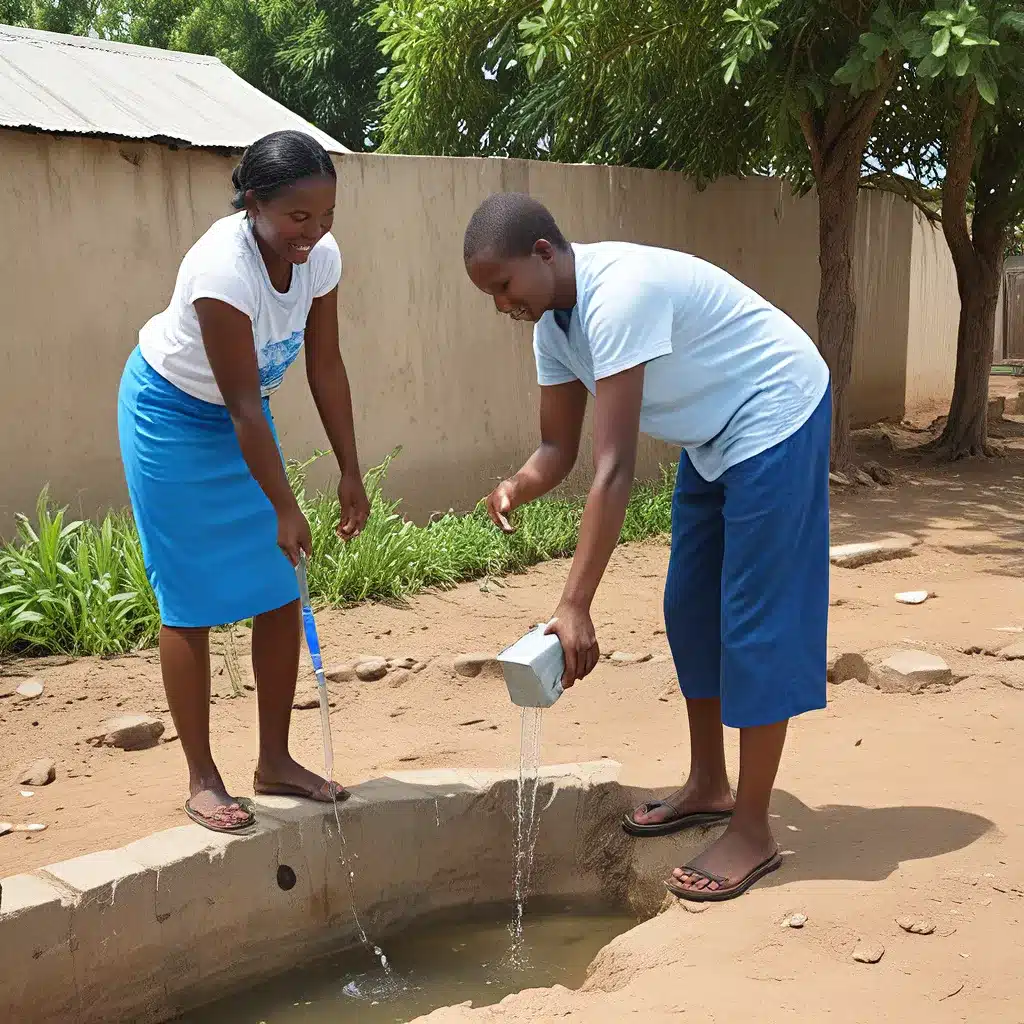
Unlocking the Power of Water: A Journey Towards Sustainable Futures
Water, the elixir of life, holds the key to empowering communities across the globe. As we navigate the complexities of the 21st century, the need for responsible water management has never been more crucial. Join me on an eye-opening exploration as we uncover the transformative power of water and how it can uplift communities, foster resilience, and pave the way for a more sustainable future.
Educating the community is the foundation upon which we can build a water-secure world. By empowering individuals with knowledge and skills, we can ignite a spark of ownership and responsibility that will forever shape the way communities approach water resources.
The Power of Education: Unlocking Sustainable Solutions
Imagine a world where every community member understands the intricate workings of their local water systems, the impact of human activities on water quality, and the importance of water conservation. This is the transformative power of education. When we equip communities with the necessary knowledge and tools, they become active participants in the quest for sustainable water management.
Education catalyzes the building of awareness and understanding about the water ecosystem, the threats it faces, and the solutions that can be implemented. Community members, armed with this valuable information, can then make informed decisions, contribute ideas, and collaborate on initiatives that benefit the entire community.
But the magic doesn’t stop there. Capacity-building in the realm of water, sanitation, and hygiene (WASH) education is crucial for improving public health. By imparting knowledge about proper hygiene practices, the prevention of waterborne diseases, and the significance of safe water handling, we empower communities to take an active role in maintaining clean water sources. Imagine the ripple effect of a community that understands the importance of handwashing, water treatment, and waste management – a true game-changer in the quest for sustainable water solutions.
Fostering Community Engagement: The Key to Lasting Change
Education doesn’t just impart knowledge; it also fosters a sense of community engagement. When individuals are equipped with the tools and understanding to actively participate in decision-making processes related to water management, they become invested stakeholders in the well-being of their community.
Imagine a scenario where community members, armed with technical skills in water infrastructure maintenance, water quality testing, and the operation of decentralized water treatment systems, take charge of their local water initiatives. This empowerment not only ensures the long-term sustainability of these projects but also instills a deep sense of ownership and responsibility among the residents.
As communities become educated and equipped, they also develop the resilience to adapt to changing conditions, including those induced by climate change. By recognizing environmental shifts and responding with appropriate solutions, these communities ensure the resilience of their water management practices, safeguarding their future water security.
Cultivating Local Water Champions: Multiplying the Impact
Education doesn’t just benefit individuals; it also creates a ripple effect that resonates throughout the community. As empowered individuals emerge as local champions for water sustainability, they become the driving force behind the dissemination of knowledge and the encouragement of positive behaviors within their communities.
Imagine a scenario where a passionate community member, inspired by the knowledge they’ve gained, takes the lead in organizing water conservation campaigns, educating their neighbors, and advocating for policy changes that prioritize responsible water management. This kind of grassroots leadership has the power to transform entire communities, creating a domino effect of sustainable water practices that reverberate across the region.
Strengthening the Fabric of Community
Education and capacity-building initiatives don’t just address water challenges; they also contribute to the social fabric of communities. As individuals gain knowledge and skills together, a sense of shared responsibility and collaboration is nurtured, forming a strong foundation for collective action in sustainable water management.
Imagine a community where residents come together to maintain and repair their shared water infrastructure, monitor water quality, and organize community-wide water conservation efforts. This social cohesion, forged through education and a shared understanding of the importance of water, becomes the glue that holds the community together, empowering them to tackle complex water challenges with a united front.
Empowering the Future: A Call to Action
As we stand at the crossroads of water sustainability, the time has come to empower communities through responsible water management. By investing in education and capacity-building, we can unlock the transformative power of water, fostering resilient, engaged, and self-sufficient communities that are equipped to navigate the challenges of the future.
Let us be the catalysts of change, the champions of community empowerment. Join us on this journey as we Inland Waters Inc. work hand-in-hand with communities to build a water-secure world, one empowered individual at a time. Together, we can create a future where water is not a source of scarcity, but a symbol of unity, prosperity, and hope.


